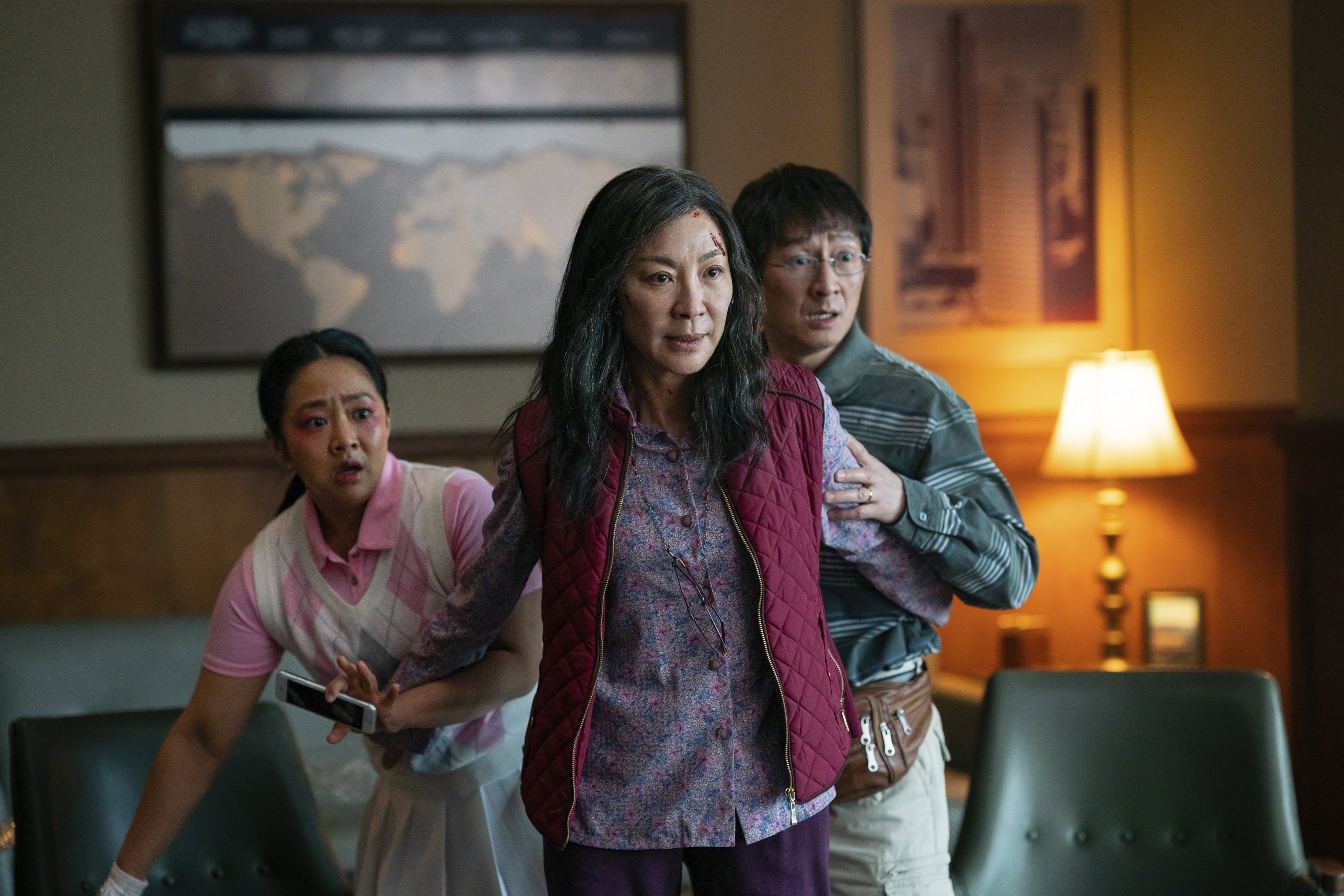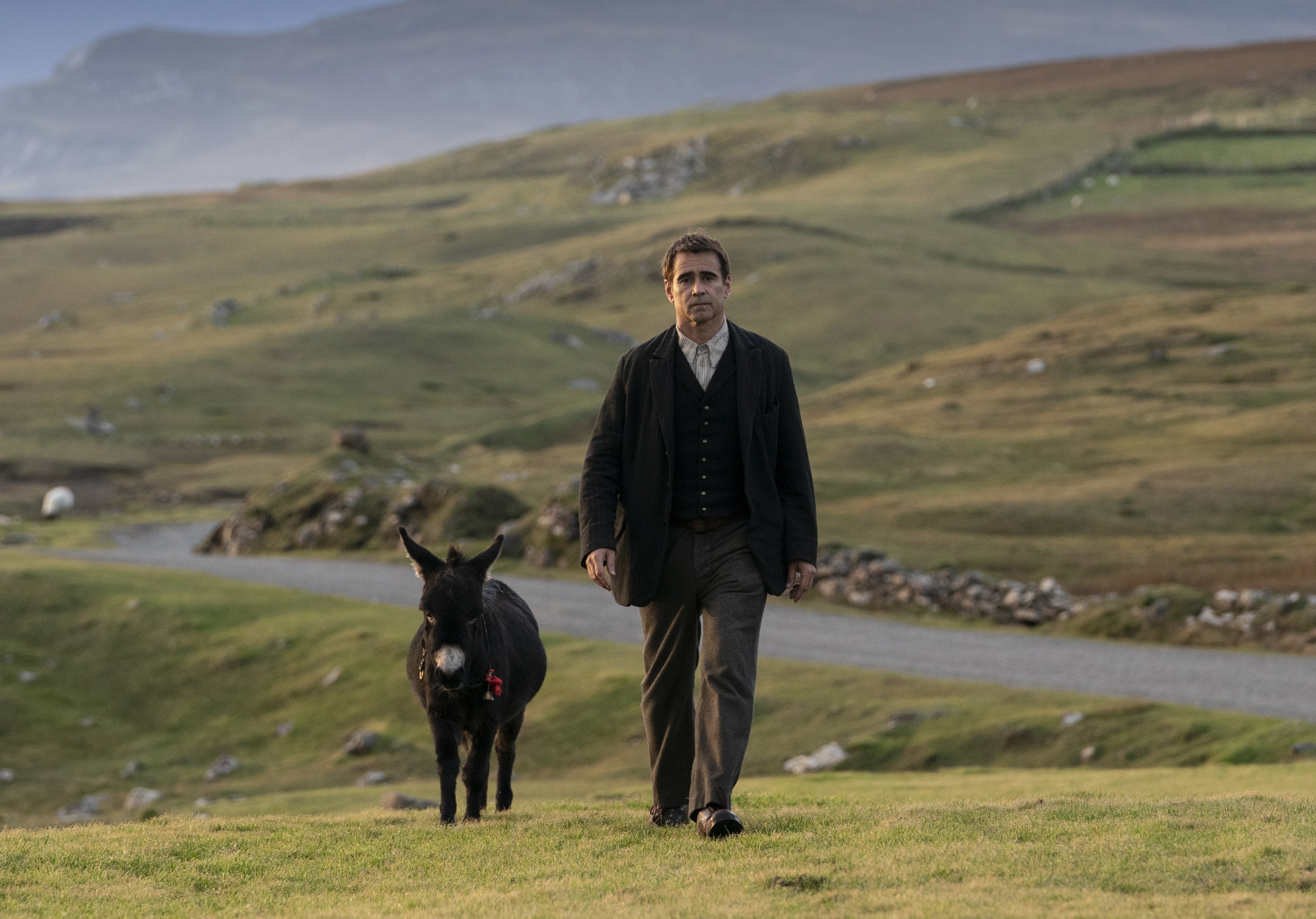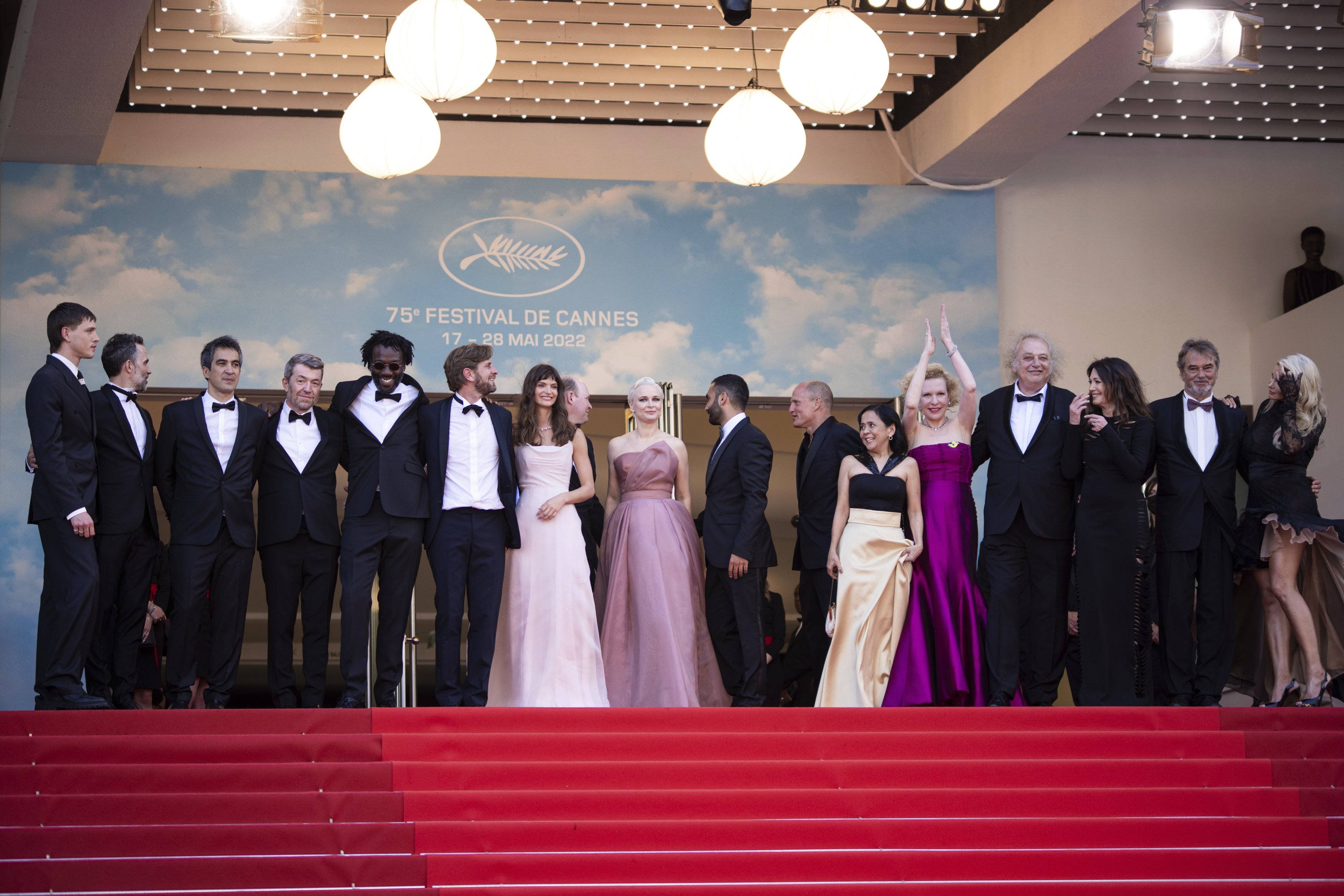© Turkuvaz Haberleşme ve Yayıncılık 2026
Surprises, shocks, antipacitions. The Oscar nominations always make the audience go through this roller coaster of emotions.
However, the 95th Academy Awards nominees list appeared to include more than its fair share of good and bad surprises. Here are some notable omissions and pitfalls that are making headlines in Hollywood.
Though Steven Spielberg’s "The Fabelmans” struggled to catch on with audiences, the director’s autobiographical coming-of-age tale landed Spielberg his 20th Oscar nomination and ninth nod for the best director. John Williams, his longtime composer, extended his record for the most Oscar nominations for a living person and, at 90, became the oldest nominee ever. Williams' 53rd nominations trail only Walt Disney’s 59.
His nod for "The Fabelmans” puts him in the rarefied company but is not a record – that goes to William Wyler with 12. Spielberg has won the prize twice. He has been nominated 12 times as a producer of the best picture candidate, winning once, and this year gets his first nomination as a screenwriter for co-writing "The Fabelmans” with Tony Kushner.
In the ultra-competitive best actress race, "Fabelmans” star Michelle Williams was nominated after being passed over by the Screen Actors Guild.
Baz Luhrmann's bedazzled biopic "Elvis” – another summer box-office hit with $287.3 million worldwide – came away with eight nominations, including the best actor nod for star Austin Butler and nominations for its costumes, sound, and production design.

It was a solid year for actors of Asian descent, with a record four getting nominations: Michelle Yeoh, Ke Huy Quan, and Hsu for "Everything Everywhere All at Once,” and Hong Chau for "The Whale."
Quan and Chau – both the children of Vietnam War refugees – and the California-born Hsu and the Malaysia-born Yeoh together make it the most acting nominations ever for Asian or Asian American actors. (Some count Merle Oberon, of Sri Lankan and Welsh heritage, the first Asian best actress nominee, in 1936, though she hid her ancestry.)
Daniel Scheinert and Daniel Kwan’s "Everything Everywhere All at Once” landed 11 nominations on Tuesday, including nods for Michelle Yeoh and comeback kid Ke Huy Quan, the former child star of "Indiana Jones and the Temple of Doom.” Released in March, the A24 film has proven an unlikely Oscar heavyweight against the expectations of even its makers. Yeoh became the first Asian actor nominated for best actress.
"Even just to be nominated means validation, love, from your peers," said an "overwhelmed” Yeoh speaking by phone from London. "What it means for the rest of the Asians around the world, not just in America but globally, is to say we have a seat at the table. We finally have a seat at the table. We are being recognized and being seen."

Ireland celebrated a record 14 Oscar nominations on Tuesday, scooping five of the 20 acting spots up for grabs and, for the first time, earning a nod for a feature film made in the native Irish language.
The haul – which included nine nominations for "The Banshees of Inisherin," the dark comedy filmed on a remote island off the western Irish coast – was the top item on Ireland's flagship evening news program, relegating politics to second place.
Colin Farrell, Brendan Gleeson, Kerry Condon, and Barry Keoghan all earned their first Oscar-ever nominations for "The Banshees of Inisherin," while Paul Mescal joined Farrell in the best actor shortlist for the independent movie "Aftersun."
"Triangle of Sadness," a Swedish-directed film including Turkish national broadcaster (TRT) as co-producer, got three nominations. The satire of capitalism is vying for the best picture, best director, and original screenplay.
The movie, a co-production of Türkiye, France, Germany, the U.K., Sweden, Switzerland, the U.S., and Greece, is a social satire of wealthy industrialists and influencers, featuring two models and influencers, Carl (Harris Dickinson) and Yaya (Charlbi Dean), who are invited on a luxury yacht cruise.

There are 30 films in the Marvel Cinematic Universe and no actor has ever been nominated for their performance in one until today when Angela Bassett broke the mold by getting a supporting actress nod for playing a grieving queen in "Black Panther: Wakanda Forever.” Bassett has been nominated before – in 1994, for playing Tina Turner in "What’s Love Got to Do With It” – and has now joined a small group of Black women to have multiple acting nominations: Whoopi Goldberg, Octavia Spencer, and Viola Davis.
For the first time, two sequels – "Top Gun: Maverick” and "Avatar: The Way of Water” – were nominated for best picture. The two films together account for some $3.5 billion at the box office. Tom Cruise missed out on an acting nomination, but "Top Gun: Maverick” – often credited with bringing many moviegoers back to theaters – walked away with seven nominations, including best sound, best visual effects, and best song for Lada Gaga's "Hold My Hand.” Ryan Coogler's "Black Panther: Wakanda Forever,” made in the wake of Chadwick Boseman's death, also scored five nominations, including the first acting nod for a performance in a Marvel movie: Angela Bassett, the likely favorite to win best supporting actress.
Ana de Armas scored a coveted nomination for the poorly received "Blonde.” This was perhaps more expected after she broke through with a Screen Actors Guild nod. Still, the biggest shock was the wholesale exclusion of Black women from the category, including Viola Davis for "The Woman King” and Danielle Deadwyler for her universally praised performance as Mamie Till-Bradley in "Till.” At least one of those spots was taken up by Michelle Williams for "The Fabelmans,” which was not a guarantee given her SAG snub.

We should have seen this coming after the directors and producers' guilds selected movies that men only directed, but the Academy has a different makeup. There was hope that members might acknowledge some of the extraordinary films this year that happened to have a woman behind the camera, especially after two consecutive years of women winning the prize (Jane Campion and Chloe Zhao). The would-be nominees included Prince-Bythewood, Sarah Polley for "Women Talking,” and Charlotte Wells for "Aftersun.”
"All Quiet on the Western Front" by German director Edward Berger has been nominated in the best film category.
It became the latest to pull off the nomination double. All seven of its predecessors have won the international feature Oscar but only one, "Parasite,” in 2020, also won best picture.
German composer and pianist Volker Bertelmann is in the running for the music to "All Quiet on the Western Front." Bertelmann, who uses the name Hauschka, was nominated in 2017 along with Dustin O'Halloran from the U.S. for the soundtrack to "Lion."
The international feature category always has its share of oversights. But this year one of the bigger surprises was the exclusion of Park Chan-wook’s acclaimed romantic noir "Decision to Leave,” from South Korea. Four-time Oscar winner Alejandro G. Inarritu’s personal epic "Bardo, False Chronicle of a Handful of Truths” was also shut out from the category. All the nominated films were also directed by men, which is disappointing in a year with films like "Saint Omer” and "Corsage.”

Along with "All Quiet on the Western Front,” the nominees for the best international film are: "Argentina, 1985” (Argentina); "Close” (Belgium); "EO” (Poland); "The Quiet Girl” (a first for Ireland). The category has been criticized for allowing submissions to be chosen by each country's government, a process that disadvantages filmmakers working in oppressive regimes. Iranian director Jafar Panahi, whose "No Bears” was hailed as one of 2022's best, was imprisoned earlier this year.
S.S. Rajamouli’s three-hour maximalist action epic "RRR” looked like it might break through with a best picture nomination. Still, the beloved Telegu film got just one nomination for best song for M.M. Keeravaani’s "Naatu Naatu.” It wasn't eligible for the international film category, as India submitted another film.
Only one streaming title broke into the best picture field: The German WWI film "All Quiet on the Western Front.” Though Netflix, for the first time in years, lacks a possible best picture frontrunner, "All Quiet on the Western Front” landed a better-than-expected nine nominations, including best international film and best-adapted screenplay. The streaming service also has the top animated film contender in "Guillermo del Toro's Pinocchio," which was nominated for best-animated feature alongside "Marcel the Shell With Shoes On,” "Puss in Boots: The Last Wish," "The Sea Beast” and "Turning Red."
The Academy Awards, better known as the Oscars, is the most prestigious award ceremony in the film industry. The origins of the nickname aren’t entirely clear, and there are multiple theories about the Oscar moniker. The one referenced on the Oscars website is the story of Academy librarian Margaret Herrick. She is said to have remarked that the award resembled her Uncle Oscar. Hollywood columnist Sidney Skoklsky has published articles using the word “Oscar” for the Academy Awards since March 1934. He wrote about the reasons behind using the name in his 1975 book "Don’t Get Me Wrong – I Love Hollywood." “It was my first Academy Awards night when I gave the gold statuette a name. I wasn’t trying to make it legitimate,” Skoklsky wrote. The third prevalent theory comes from Bette Davis. The theory claims she named it Oscar because the rear end of the statue reminded her of her first husband Harmon Oscar Nelson.
